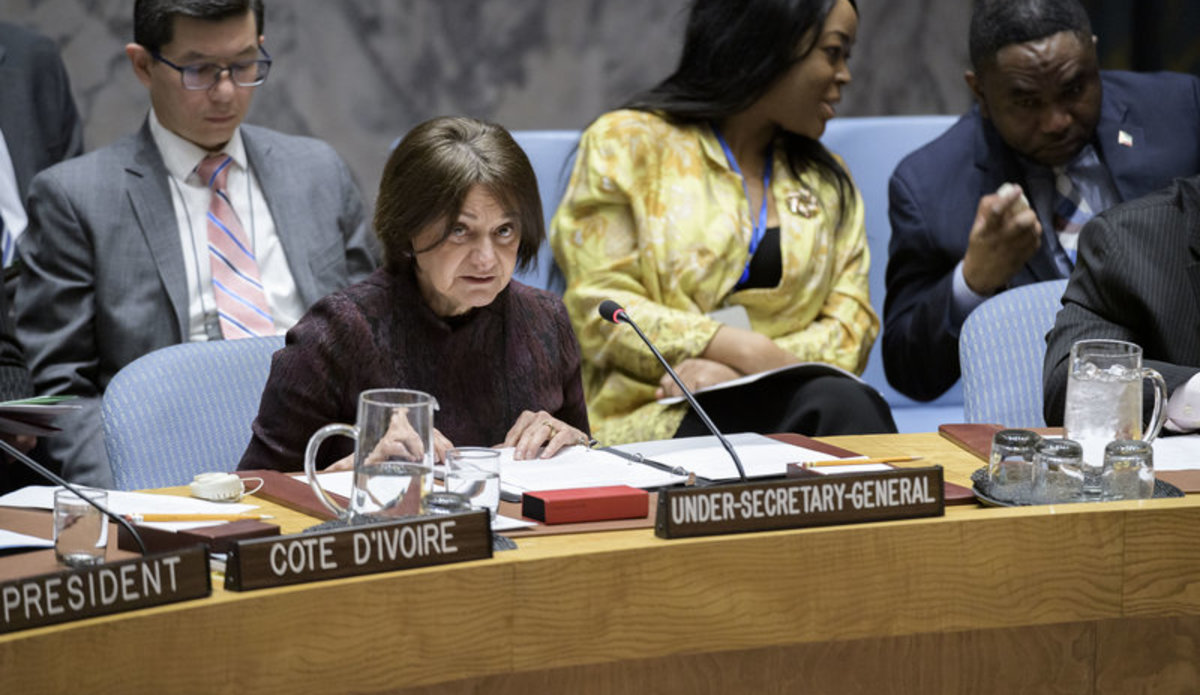Excellencies,
Distinguished Delegates,
Ladies and Gentlemen.
I thank the Government of the Dominican Republic for convening this timely open debate.
The risks associated with climate-related disasters do not represent a scenario of some distant future. They are already a reality for millions of people around the globe – and they are not going away.
A report released by the Intergovernmental Panel on Climate Change last October predicted more heat waves, heavier rain events, higher sea levels, and more severe damage to agriculture.
These trends represent a security risk for the entire world. However, their consequences are felt most strongly in regions that are already vulnerable, where climate change and extreme weather compound existing grievances and threats.
The relationship between climate-related risks and conflict is complex and often intersects with political, social, economic and demographic factors.
Sea level rise is an obvious primary impact of climate change, and one which ultimately threatens the very existence of coastal communities and small island states. Extreme weather is another such consequence. In the space of a month, hurricanes Irma, Harvey and Maria displaced around three million people along the Atlantic Coast of the Americas and the Caribbean. The worst impact was felt by small island developing states in the region.
In Haiti, for example, a series of climate-related disasters has struck the country since the devastating earthquake in 2010, and has contributed to instability and a prolonged humanitarian crisis.
Climate change also affects peace and security in indirect, but no less serious ways.
In the Sahel and the Sudan, for instance, climate change has heightened competition for diminishing land, forage and water resources, fueling tensions between herders and farmers. In the Lake Chad Basin, climate change contributes to unpredictable rainfall patterns that impede traditional livelihood options, compound socio-economic exclusion, and reduce the opportunity costs of joining armed groups.
Climate-related displacement has also become an acute problem. Frequent and longer droughts in Somalia have been a major factor in the displacement of more than 2.6 million people[1], which in turn drives up local tensions as well as human trafficking, child exploitation, and recruitment by armed groups.
For the Security Council, this is not news. In recent months, the Council has recognized the adverse effects of climate change, among other factors, on the stability of Mali, Somalia, West Africa and the Sahel, Central Africa, and the Sudan.
The Secretary-General, for his part, has articulated a broad vision for prevention and made it a priority to improve our ability to address wider stresses and shocks that can exacerbate crises and lead to violent conflict.
Across the United Nations system, efforts are intensifying to leverage capacities and sharpen responses.
For example, the United Nations Regional Office in West Africa and the Sahel has been working closely with ECOWAS to analyze climate-related security risks in the region, and to jointly develop regional prevention strategies.
These regional approaches are also being applied in Central Asia, where regional cooperation is fostering progress in the area of trans-boundary water management, through ongoing consultations among Central Asian states, supported by the UN Regional Centre for Preventive Diplomacy.
In country-specific contexts, our missions are also building responses to the consequences of climate change. In Somalia, UNSOM and the United Nations Country Team have worked closely together to establish an effective drought response programme.
Looking ahead, the United Nations will invest in a number of actions.
First, we are strengthening our analytical capacity. The Department of Political and Peacebuilding Affairs, the United Nations Development Programme, and the United Nations Environment Programme, in collaboration with practitioners from across and beyond the UN, are developing an integrated risk assessment framework to analyze climate-related security risks.
Furthermore, in response to Security Council Presidential Statement 2011/15, which requested more contextual information on the security implications of climate change, the UN is working to ensure that such analysis is better reflected in our mandated reports.
Second, the UN is seeking to strengthen the evidence base to support development of climate risk prevention and management strategies at the field level. We invite Member States and other interested actors to jointly undertake a review of good practices that will inform this work.
And third, we are strengthening partnerships to leverage existing capacities across the United Nations system, and with Member States, regional organizations, civil society, and the growing external research community. Addressing the security implications of climate change is a collective problem, which requires a collective response.
Most important, for all of us, is the recognition that deeds must follow words. Major armies and businesses have long recognized the need to prepare for climate-related risks, rightfully assessing climate change as a threat multiplier. We cannot lag behind. We must act now, with a sense of urgency and a commitment to place people, especially those most marginalized and vulnerable, at the centre of our efforts.
Given the critical role and responsibility of the Security Council, I am encouraged by today’s debate. It signals our willingness to establish a shared understanding of the impact of climate-related security risks on international peace and security.
In this regard, I would like to thank again the Dominican Republic for convening us on this subject.
Thank you.
[1] Data from OCHA.

